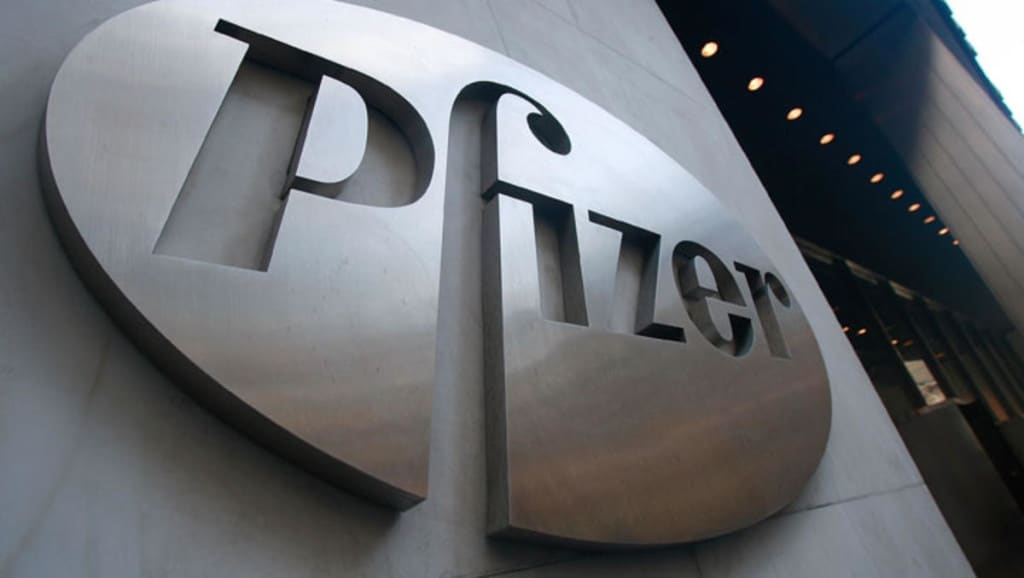Pfizer Inc. is a great stock, Jim Cramer said on Mad Money on Thursday. CEO Ian Read is doing some good things with the pharma giant, and Cramer advises investors to start buying into the stock.
This may seem contradictory at a time when drug stocks are getting badly hammered. But dig beneath the current market fickleness, and you will find plenty of reasons to like Pfizer.
Pfizer Inc’s Solid Financials
In its last reported quarter, Pfizer recorded adjusted earnings of 56 cents per share. That was 4 cents above the average analysts’ estimate. Revenue also came in better than expected at $11.85B.
Pfizer Inc. has a net profit margin of 22 percent. It easily exceeds the pharma sector average of 19 percent. The current debt-to-equity ratio is below the industry average at 0.53. Ian Read has indeed done a good job of keeping debt within manageable proportions.
At the current market price of around $30, PFE’s price-to-earnings ratio comes in at 21. Bristol Myer’s PE is a whopping 53!
No Major Patent Expiration Risk
One of the most important parameters to consider while evaluating pharma stocks is the number of drugs that are close to losing patent protection. Once that happens, generics swamp the market. That triggers sharp declines in both revenue and profit margins.
Encouragingly, Pfizer Inc. ’s well-established product portfolio will remain patent-protected for several more years. These include arthritis treatment Celebrex and fibromyalgia drug Lyrica.
Contrast that with rival Eli Lilly, which is desperately seeking for new sources of income. CEO John Lechleiter recently conceded that the firm was staring at significant loss of revenue from “Cymbalta and Evista following the expiration of U.S. patents.”
Increasing Presence in the Lucrative Cancer Drug Space
Pfizer Inc. ’s presence in the cancer drug space was almost non-existent until a few years back. The bulk of PFE’s profits came from just two drugs – Viagra and Lipitor.
But Pfizer is steadily gaining ground in this highly lucrative field. And in the process challenging established rivals like Bristol-Myers Squibb and Merck.
PFE right now has 8 approved cancer drugs. 4 of them were launched in the past four years. In addition, 3 are in late-stage testing, while 14 drugs are in early stages.
Pfizer is not just focusing on tumor-killing treatments. It is also working on the new class of immuno-oncology drugs that activate the human immune system to mount a stronger resistance against cancer.
Pfizer Inc. has “the scale and R&D experience to be a major player in the immuno-oncology market. We’ve seen them do a lot in a short time,” Ashton Evans, an analyst at Edward Jones, said
Evans forecasts that by 2020, cancer drugs would constitute 10 percent of Pfizer’s revenue, up from the current meagre 4 percent.
Trusted & Regulated Stock & CFD Brokers
What we like
- 0% Fees on Stocks
- 5000+ Stocks, ETFs and other Markets
- Accepts Paypal Deposits
Min Deposit
$200
Charge per Trade
Zero Commission on real stocks
64 traders signed up today
Visit Now67% of retail investor accounts lose money when trading CFDs with this provider. You should consider whether you can afford to take the high risk of losing your money.
Available Assets
- Total Number of Stocks & Shares5000+
- US Stocks
- German Stocks
- UK Stocks
- European
- ETF Stocks
- IPO
- Funds
- Bonds
- Options
- Futures
- CFDs
- Crypto
Charge per Trade
- FTSE 100 Zero Commission
- NASDAQ Zero Commission
- DAX Zero Commission
- Facebook Zero Commission
- Alphabet Zero Commission
- Tesla Zero Commission
- Apple Zero Commission
- Microsoft Zero Commission
Deposit Method
- Wire Transfer
- Credit Cards
- Bank Account
- Paypall
- Skrill
- Neteller
What we like
- Sign up today and get $5 free
- Fractals Available
- Paypal Available
Min Deposit
$0
Charge per Trade
$1 to $9 PCM
Visit Now
Investing in financial markets carries risk, you have the potential to lose your total investment.
Available Assets
- Total Number of Shares999
- US Stocks
- German Stocks
- UK Stocks
- European Stocks
- EFTs
- IPOs
- Funds
- Bonds
- Options
- Futures
- CFDs
- Crypto
Charge per Trade
- FTSE 100 $1 - $9 per month
- NASDAQ $1 - $9 per month
- DAX $1 - $9 per month
- Facebook $1 - $9 per month
- Alphabet $1 - $9 per month
- Telsa $1 - $9 per month
- Apple $1 - $9 per month
- Microsoft $1 - $9 per month
Deposit Method
- Wire Transfer
- Credit Cards
- Bank Account



